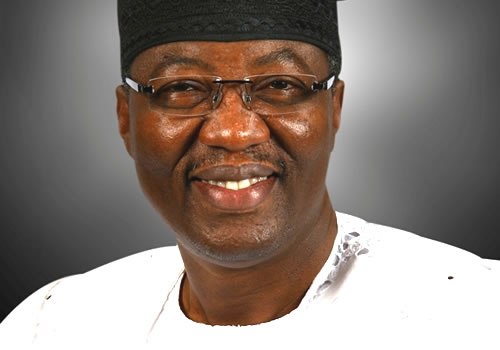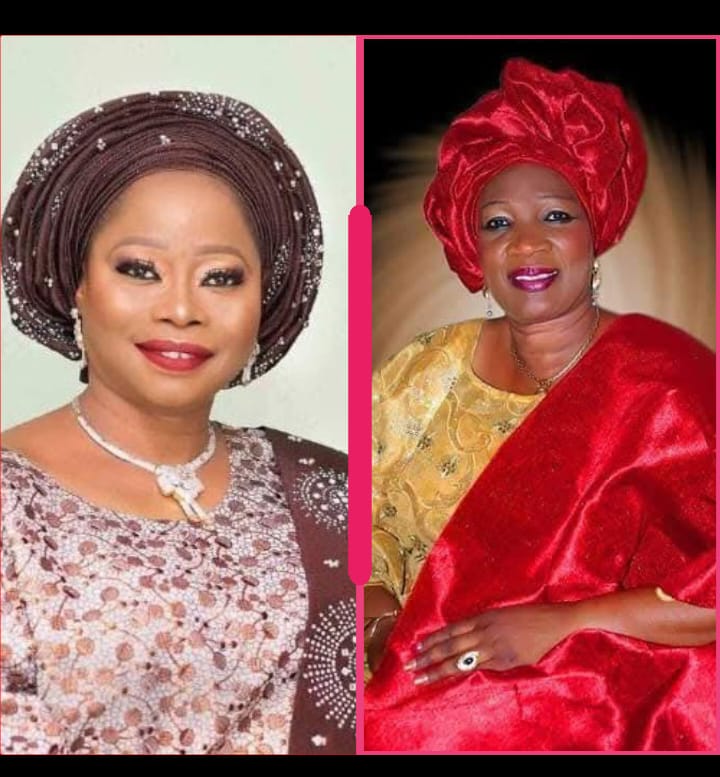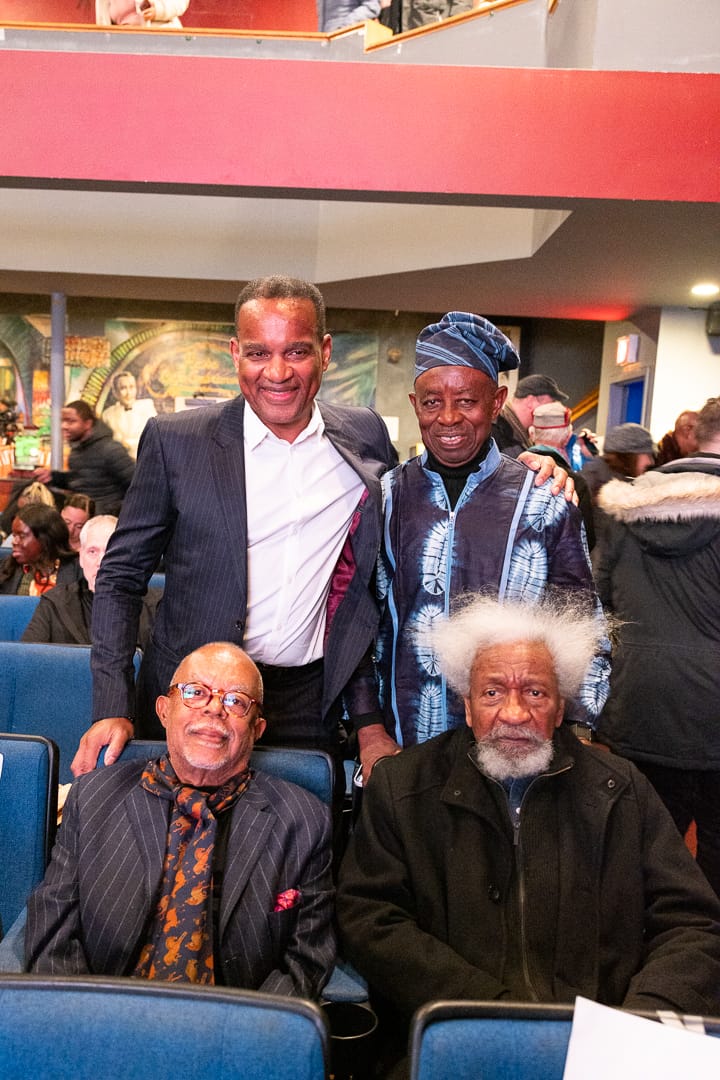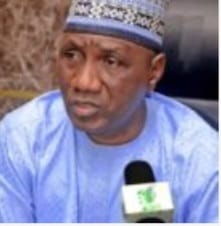society
CSOs Petition Senate, Accuse Gbenga Daniel Of Plot To Destabilize Ogun State

CSOs Petition Senate, Accuse Gbenga Daniel Of Plot To Destabilize Ogun State
Twenty-one pro-democracy organizations have petitioned the Nigerian Senate, accusing a former Governor of Ogun State, Otunba Gbenga Daniel of plotting to destabilise the state.
The groups said Daniel, who is the Senator representing Ogun East Senatorial District is creating tension in the Gateway State by his incessant attacks on the state government and Governor Dapo Abiodun.
Speaking on behalf of the groups after submitting the petition in Abuja on Friday, Comrade Johnson Okuwatobi said the Senate must call Otunba Daniel to order.
He noted that Ogun State has been peaceful, devoid of any political gangsterism until recently.
The groups, in their petition, said: “We wish to bring to the attention of the Nigerian Senate and the general public the worrisome actions and statements being made by Senator Gbenga Daniel, which have now contributed to the creation of tension and division within Ogun State.
“Over recent months, Senator Gbenga Daniel has engaged in a series of public attacks on Governor Dapo Abiodun, resorting to inflammatory rhetoric and actions that are detrimental to the peace and progress of Ogun State. These actions have created an environment of unnecessary tension and conflict within the state.
“As advocates for peace, unity, and responsible governance, we firmly believe that political disagreements should be addressed through lawful and democratic means, rather than through the incitement of discord and public acrimony. The people of Ogun State deserve leaders who prioritize their welfare and development over personal or political rivalries.
“In light of these concerns, we hereby petition the Nigerian Senate to call Senator Gbenga Daniel to order, over his actions and statements, which have undermined the peace and stability of Ogun State. We call on the Senate to assess whether his conduct is consistent with the standards of ethical behaviour expected of a member of the Senate.”
The groups also urged all political stakeholders in Ogun State to prioritize the well-being of the people and engage in constructive dialogue and cooperation for the betterment of the state.
Ogun State, the groups added, deserves leaders who work together for its progress and prosperity.
“We hope that the Nigerian Senate will act swiftly and decisively to address this matter and ensure that our democracy is strengthened through the promotion of responsible and respectful political discourse,” they added.
The petition was signed by Campaign for Democracy and Justice, Centre for Human Rights and Justice, Sustainable Initiative for Good Governance, Activists for Good Governance, Media Rights Concern, Lawyers Network for Change, Coalition of Democrats for Good Governance, Centre for Justice, Lagos, Democratic Youth Council, Coalition for Good Governance, Media Rights Concern among others.
society
Yeye Funmilayo Omotola Sampson extends warm congratulations to Mrs. Kofoworola Ajayi on her recent appointment as Chairman of Ifako Ijaiye LG APC.

Yeye Funmilayo Omotola Sampson extends warm congratulations to Mrs. Kofoworola Ajayi on her recent appointment as Chairman of Ifako Ijaiye LG APC.
A notable woman leader in Ifako Ijaiye Local Government, Yeye Funmilayo Omotola Sampson, has congratulated the newly appointed Chairperson of APC in Ifako Ijaiye Local Government, Mrs. Kofoworola Ajayi, on her appointment.
Yeye Funmilayo Omotola Sampson underscores her appointment as a testament to her unwavering commitment and various contributions to the party’s progress in the local government area.
Yeye Funmilayo Omotola Sampson observed that Mrs. Kofoworola Ajayi’s proven track record as a grassroots leader and astute politician equips her with what it takes to advance the party’s agenda and achieve success in the 2027 general election.
“I offer you my warmest congratulations in your new office and appeal to all party faithful in Ifako Ijaiye Local Government to rally behind our newly appointed party leader, working together to make her leadership successful.
I would like to seize this opportunity to congratulate our Leader, Mrs. Kofoworola Ajayi, on your appointment, and may Almighty God bless you with divine wisdom and knowledge to propel the APC in Ifako Ijaiye to greater heights”.
Signed:
Yeye Funmilayo Omotola Sampson
society
Amazing Grace: Yorùbà Worlds” wins Programmer’s Award for Best Feature Documentary in the United States

Amazing Grace: Yorùbà Worlds” wins Programmer’s Award for Best Feature Documentary in the United States
The U.S. premiere of the documentary film Amazing Grace: YorubaWorlds, featuring Africa’s first Nobel Laureate in Literature, Prof. Wọle Ṣoyinka, and directed by Haitian-American filmmaker Raynald Leconte, won the Programmers Award for Best Feature Documentary at the Pan African Film Festival (PAFF) in Los Angeles, California.
The sold-out premiere at Culver Theater 3 was attended by director Raynald Leconte and editor Nicolas Sicurella. Prof. Wọle Ṣoyinka and producers Tunde Kelani and Rotimi Alakija were unable to attend. Prominent members of the Yorùbá community present included Ojise Isedale (Olubunmi Olukanni), who served as host and Master of Ceremonies, Fatimoh Mohammed, Wale Jimoh, Mr & Mrs. Ayeloj, and Mr & Mrs Lekan Salam representing Ọmọ Yorùbá of Southern California.
Please follow the progress of this remarkable film on Instagram
Speaking after the screening, Òjíṣẹ́ Ìṣẹ̀dálẹ̀ expressed his delight at the film receiving the Programmer’s Award for Best Feature Documentary in the United States, noting that the recognition also honors Prof. Wọle Ṣoyinka, whose U.S. visa was controversially revoked last year by the U.S. Embassy in Nigeria.
In addition to Prof. Wọle Ṣoyinka, the groundbreaking documentary features global cultural icons including Ooni of Ìfẹ́ Ọba Ẹnitan Ojaja II, Gilberto Gil, Carlinhos Brown, Brazil’s Minister of Culture Margareth Menezes, Seun Kuti, Brymo, Falana, Erelu Abiola Dosunmu, the Araba of Ife, Molara Wood, Iya Agba Cece of Brazil, and the legendary Fela Kut
society
Political Earthquake in Abuja: Gwagwalada Chairman-Elect Defects from PDP to APC Days After Victory

Political Earthquake in Abuja: Gwagwalada Chairman-Elect Defects from PDP to APC Days After Victory
By George Omagbemi Sylvester | Published by SaharaWeeklyNG
“Mohammed Kasim’s Swift Party Switch After FCT Council Polls Sparks Outrage, Raises Questions About Electoral Mandate and Political Loyalty.”
In a dramatic post-election twist that is reverberating through Nigeria’s capital, Mr. Mohammed Kasim; the newly elected chairman of Gwagwalada Area Council in the Federal Capital Territory (FCT) and has reportedly defected from the Peoples Democratic Party (PDP) to the ruling All Progressives Congress (APC) just days after being declared winner of the February 21 area council elections.
Kasim’s evolution from opposition victor to APC affiliate compounds political tensions in the FCT. Independent National Electoral Commission (INEC) results had shown him securing the Gwagwalada chairmanship with 22,165 votes, defeating the APC’s Yahaya Shehu’s 17,788 votes in a keenly contested poll.
Yet sources close to political circles in Abuja suggest Kasim’s defection was pre-negotiated with key stakeholders in the corridor of power, triggering controversy within PDP ranks and raising questions over democratic integrity at the grassroots.
Political analysts contend this move reinforces APC’s dominance ahead of the 2027 general elections while highlighting institutional fragilities within the opposition. As Dr. Aisha Bello, a governance expert at the Centre for Democratic Studies, observes, “Defections at the local level underscore the erosion of ideological coherence in Nigerian politics and signal a drift towards patronage-driven alignments rather than programme-based political competition.”
The PDP has reportedly threatened legal action to contest the legitimacy of the defection on grounds that it undermines the electoral will of Gwagwalada constituents, insisting that allegiance shifts so soon after a mandate breach electoral norms. For residents and observers, Kasim’s decision is more than political theatre: it is a litmus test for Nigeria’s democratic maturation and the resilience of opposition structures under pressure.
-

 celebrity radar - gossips6 months ago
celebrity radar - gossips6 months agoWhy Babangida’s Hilltop Home Became Nigeria’s Political “Mecca”
-

 society5 months ago
society5 months agoReligion: Africa’s Oldest Weapon of Enslavement and the Forgotten Truth
-

 society6 months ago
society6 months agoPower is a Loan, Not a Possession: The Sacred Duty of Planting People
-

 news6 months ago
news6 months agoTHE APPOINTMENT OF WASIU AYINDE BY THE FEDERAL GOVERNMENT AS AN AMBASSADOR SOUNDS EMBARRASSING









